

Tao Te Ching
Search Sages
Enter all or part of an sage's name or biography in the fields below, then press tab or enter to filter the list of Authors. Click the headings Name or Biography to sort by that column. Diacritics are ignored when searching.
Click on the author's name to go to their page.
| Author Name | Biography |
|---|---|
| Sarah Grimke | 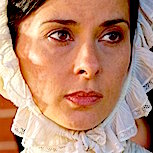 Sarah Grimke Sarah GrimkeGoing against her SC Supreme Court chief Justice father who held hundreds of slaves and opposed women’s rights, Sarah supported Abraham Lincoln and her writings fueled and inspired the beginning of the women’s suffrage movement. When she was 5 years old after watching a slave whipping, she tried to leave her state and find a place without slavery. Breaking the law, she taught a slave to read, taught slaves Bible lessons, and against the culture secretly advanced here own "unwomanly” education. One of the first women public speakers in America and under constant criticism and attack, she wrote the first serious essay advocating equality for women and became the first American woman working to end slavery. |
| Zainab, Sayyeda Zaynab bint Ali |  Zainab, Sayyeda Zaynab bint Ali Zainab, Sayyeda Zaynab bint Ali Grand-daughter of the Prophet Muhammad, daughter of revered leader Ali ibn Abi Talib (regarded by Shia as the most important figure after Muhammad, by Sunnis as the greatest warrior champion of Islam, and by Sufis as the originator of their lineage; his legacy split Islam into Shia and Sunni), effective political leader, and one of the most admirable people in early Islam; Zainab - famous for her wisdom, strength and patience - is a rare instance of reverence for both Sunnis and Shi’as. Called the "Hero of Karbala,” she endured physical pain and mental torture to stand up against tyranny, speak the truth, and set Islam on a more just and compassionate course. In Iran today her birthday is known as Nurse's Day. |
| Susan B. Anthony | 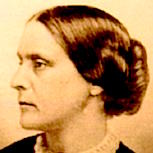 Susan B. Anthony Susan B. Anthony Harshly ridiculed, accused of trying to destroy marriage and the family, arrested for voting; Susan B. Anthony started working to end slavery as a teenager and later ran the largest petition drive against it. Giving up to 100 speeches a year, she organized and campaigned for equal rights leading to the Nineteenth Amendment (popularly called the “Susan B. Anthony Amendment”) giving women the right to vote in 1920. The first woman to be on a U.S. coin, she gave "the most famous speech for woman suffrage,” and her efforts led to legal rights for married women, women being able to attend colleges, and a fundamental, cultural attitude change. |
| Mai Bhago Kaur | 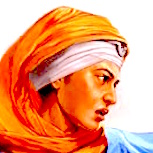 Mai Bhago Kaur Mai Bhago KaurListed by the BBC as one of the 3 most badass women in history, the first Punjab woman to fight on a battlefield, and a Sikh saint; Mai Bhago was ingenious and heroic in battle when extremely outnumbered fighting against a large Mughal army. She inspired the male warriors with her bravery, and - dressed as a man - became Guru Gobind Singh’s body guard until he died in 1708. She tirelessly fought against the caste system, tyranny, and prejudice but after being injured in battle, she withdrew into a life of meditation and lived to a peaceful old age. Her spear is still honored in a Sikh museum. |
| Adi Shankara | 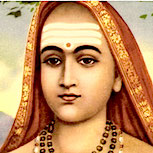 Adi Shankara Adi ShankaraPhilosopher, theologian, and sage; Shankara unified and established the main philosophical trends in Hinduism. He criticized the dogmatic and ritually oriented schools, emphasized that enlightenment can be realized in this lifetime, and established monastic, personal-practice and direct-experience traditions. Writer of fundamental texts of the Vedanta school and responsible for a major Hindu revival, he is called the source of all the main currents of modern Indian thought. His teachings are similar to Mahayana Buddhism and he was called a "crypto-Buddhist" but he explained the difference being the Buddhism teaching of no self and his that the whole universe is the self - which may be a way of saying the same thing. |
| Soong Ching-ling | 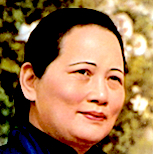 Soong Ching-ling Soong Ching-lingThe "mother of modern China,” wife of Sun Yat-sen, a Vice President of China and Honorary President of the People's Republic of China; Soong Ching-ling makes up an important part of one of history’s most famous and influential sets of sisters. Daughters of an American-educated Methodist minister/banker, one sister - a power in herself - married the leader of the Kuomintang, Chiang Kai-shek; another married the Chinese finance minister and because the richest woman in China. Soong Ching-ling stayed in mainland China and held important government positions but was persecuted during the Cultural Revolution. |
| Orpheus | 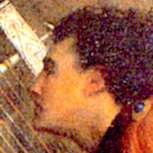 Orpheus Orpheus"Greatest poet and musician of all time" Accepted by most ancient sources as a real person but also shrouded in myth and legend, Greeks venerated Orpheus as the greatest poet and musician of all time believing his music could charm animals, divert rivers, and even make rocks and trees dance. As prophet, musical archetype, and founder of the Orphic mysteries; his influence on art, poetry, film, opera, music, and painting continues into modern times. As well as influencing Stoic pantheism and the Neo-Platonists’ asceticism; he continued a mystic cult migrated from Egyptian Osiris that included the suffering, death, and resurrection of a divine son; judgments at death of heaven, hell, or purgatory; “original sin,” and a communion sacrament of eating a god’s body and blood; it became a basis for the Christianity flourishing today. |
| Wenzi | 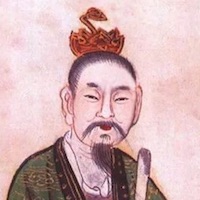 Wenzi Wenzi"Authentic Presence of Pervading Mystery.” Close disciple of Lao Tzu, nobleman from the Jin state, astronomer, teacher of the Yueh state prime minister, inspiration for the famous commentary of the same name written by his disciples; Wenzi’s life is clouded in myth, magic, and superstition. The text itself - regarded the 4th main Taoist scripture after the Tao Te Ching itself, the Zhuang Zi (Chuang Tzu), and Lie Zi (Lieh Tzu) - was considered a forgery written much later until an archeological team discovered a copy written on bamboo strips in a a tomb buried in 55 BCE. In 742 CE, Tang emperor Xuanzong gave this book the name, "Authentic Presence of Pervading Mystery.” |
| Democritus | 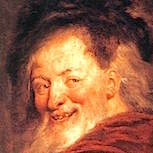 Democritus DemocritusFather of modern science and greatest of ancient philosophers The "father of modern science,” famed for his atomic theory of the universe, mathematics and geometry pioneer, called by Francis Bacon “the greatest of ancient philosophers;” the famously cheerful Democritus was born into a very rich family but spent almost all his money becoming in his era the most widely traveled going as far as Ethiopia, Persia, and India where he is said to have been exposed to and influenced by Buddhism. Returning without wealth, he devoted himself to a simple life of philosophy, science, music and art creating an influence still with us today. |
| Mujū Dōkyō | 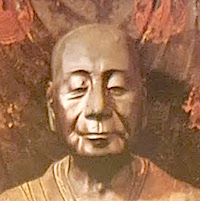 Mujū Dōkyō Mujū Dōkyō”The Non-Dweller” Champion of diversity and pluralism, Mujū Dōkyō appreciated and practiced many traditions only disapproving of intolerance, secularism, and all kinds of chauvinism. Mainly considered in the Rinzai tradition, he also studied Tendai, Pure Land, Hosso, Shingon, and Ritusu and criticized all forms of fundamentalism and teachers who denounced practices other than the ones they taught themselves. He wrote the Shasekishū (Sand and Pebbles), Zen anecdotes and stories immortalized by Paul Reps in Zen Flesh, Zen Bones. |
| Howard Zinn | 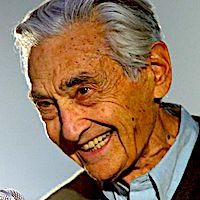 Howard Zinn Howard Zinn Historian of the oppressed and defeated Educational innovator, historian, author of 20+ books, and democratic socialist; Zinn grew up in a family of factory workers who couldn’t afford to buy books or magazines. In a dramatic and life-molding event, when young and participating in a peaceful political rally, he was knocked unconscious by mounted policing charging on the protestors. During the Vietnam War, he supported Vietnam Veterans against the War, the Civil Rights and Labor Movements. He backed the Native American, Black, and Women’s equality efforts, opposed the 2003 invasion of Iraq, and the extensive military bombing of civilian targets. Realizing the omni-influence of the phrase, “History is written by the victors,” he worked hard to popularize the stories of the morally superior but physically defeated historical groups. The success of these efforts could be measured by the identities and allegiances of his major critics: Republican Indiana Governor Mitch Daniels tried to keep his book out of state schools, because of his support for Martin Luther King, the FBI added him to their Security Index and label him a high security risk, and—even as recently as 2017—an Arkansas legislator tried to ban his books from public schools. |
| Alan Gua | 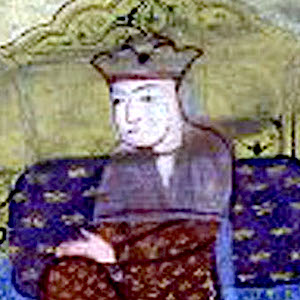 Alan Gua Alan Gua"Alun the Beautiful" Living ten generations before Genghis Khan, Alan Gua is credited with forging the original Mongol clans together when she taught her five sons the parable of the five arrows showing them how easy it is to break one arrow but how impossible when the five are bound together. This image was powerful enough to overcome her first two son’s suspicions and jealousy when she had three more sons after their father died and explained the new births as a result of a heavenly, “glittering visitor” who came through her yurt’s roof on moonbeams “like a yellow dog.” This story/image transmitted from the Mongols to the Iroquois Confederacy through Deganawida and Hiawatha and to the US Founding Fathers becoming incorporated as the Great Seal of the United States and the same essential message into the US Constitution. |
| Gesshin Myoko Roshi |  Gesshin Myoko Roshi Gesshin Myoko RoshiMoon heart miraculous light Rinzai Zen master as a girl known by Adolf Hitler who thought she was the perfect Aryan but whose family escaped to California; Gesshin Myoko (moon heart miraculous light) studied and taught Japanese and Vietnamese Zen. Painter, poet, calligrapher, and mystic from an early age; she led a life filled with spontaneous intuition and insight that led to meeting Sasaki Rōshi, becoming his disciple, helping him start thriving Zen centers, and becoming the head teacher. She later felt this approach was too severe and not appropriate for western students and developed her own Zen forms not tied to a particular culture, tradition or time period; but instead, connected with the particular students and environment involved. |
| Georg Christoph Lichtenberg | 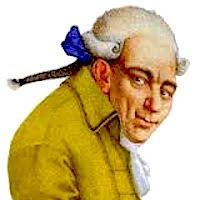 Georg Christoph Lichtenberg Georg Christoph LichtenbergOne of history’s best aphorists Youngest of 17 children, scientist, professor of physics, satirist, and hunchback; Lichtenberg had a major influence on the culture of his times that extends into the modern world. He discovered tree-like electrical patterns now called Lichtenberg figures or fractals, the basic principles used now for copy machine technology, a “Compass of Motives” praised by Freud and also standardized the paper sizes now used in most of the world. Considered one of history’s best aphorists, he was read and admired by wisdom lineage holders like Arthur Schopenhauer, Friedrich Nietzsche, Sigmund Freud, Leo Tolstoy, and even Chinese scholars like Qian Zhongshu. |
| Beatles | 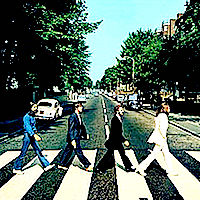 Beatles BeatlesGeorge Harrison Ringo Starr |
| Abaris Hyperboreios | 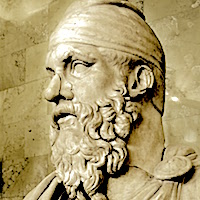 Abaris Hyperboreios Abaris HyperboreiosLegendary sage, Mongol shaman, and catalyst for the beginning of Western Civilization Abaris Hyperboreios, Skywalker βαρις Ὑπερβόρειος (c. 595 BCE) |
| Empedocles | 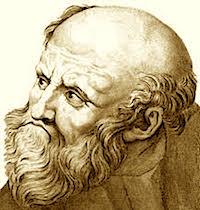 Empedocles Empedocles"The father of rhetoric"—Aristotle Empedocles Ἐμπεδοκλῆς (490 – 430 BCE) |
| Jiǎng Wéiqiáo | 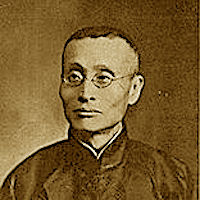 Jiǎng Wéiqiáo Jiǎng WéiqiáoFather of modern Qigong Professor, politician, and father of modern Qigong; Jiang Weiqiao was desperately suffering from tuberculosis when he discovered an inner-alchemy Taoist text. Following these practices and discovering the “microcosmic orbit,” he healed himself and became inspired to share these healing benefits with more people. Rather than taking a more philosophical or religious approach, he described these practices in scientific and medical terms. This avenue freed the tradition from most of its superstitious trappings and launched a surge of modern popularity. Working for the Chinese Ministry of Education, Jiang helped modernize educational systems throughout East Asia. During this time he discovered more serious Buddhist traditions, blended these with his Taoist understanding and taught this at many colleges and universities. |
| Freda Bedi, Sister Palmo | 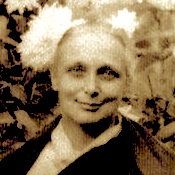 Freda Bedi, Sister Palmo Freda Bedi, Sister PalmoFreda Bedi, Sister Palmo (1911 – 1977) |
| Genghis Khan | 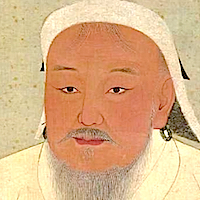 Genghis Khan Genghis KhanGenghis Khan (c. 1162 – 1227) |